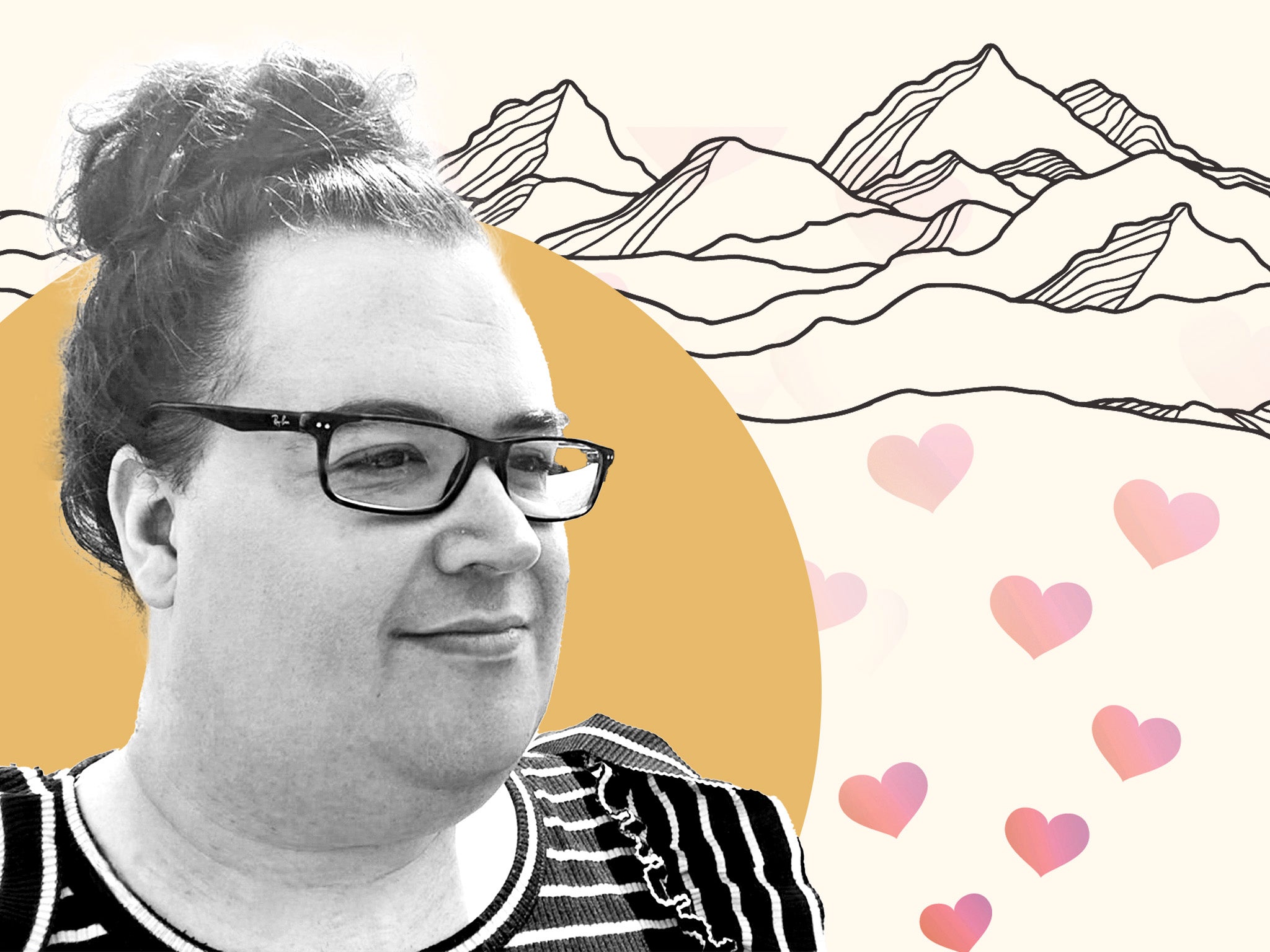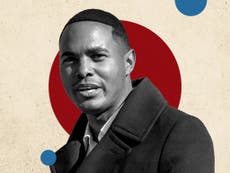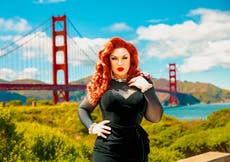My baffling journey dating as a gender non-conforming man
I approach most confusion about my gender as amusing or a compliment, Skylar Baker-Jordan writes. For me, it’s not worth getting upset over because none of it is particularly serious. It’s all superficial. What is not superficial, though, is the way the men who do want to date me treat me compared to the way men treated me when I was more masculine presenting.


I am a gender non-conforming gay man living in East Tennessee. To me, “gender non-conforming” is not an identity but a description I have adopted since moving here. People regularly mistake me for trans – as did the person who last week at Walmart loudly announced, “you’re trans like me!” – or for a woman, like the neighbor who asked if my stubble was because of my PCOS. (Please never do either of these things to anyone; it’s insensitive, especially if the person is closeted or does have a medical condition, and ultimately you should mind your own business.)
This is down to three things: my weight, my fashion, and my hairstyle. My man boobs are often mistaken for just boobs. My hair falls past my shoulders. I often wear clothing traditionally worn by women. To quote the great Hannah Horvath, “my body is confusing.”
Not only, then, am I not upset when someone mistakes my sex or gender identity – being a woman or being trans is not insulting – but I can even understand it. There are not a lot of men who look like me in Appalachia. I do not fault people for being a little baffled by me. I am an unusual sight.
The confusion about my sex and gender identity only becomes a nuisance when dating. Men, I find, want me to be someone I am not simply because of how they perceive me. For all the talk of self-expression and smashing the gender binary, it’s still as relevant as ever, at least in my bedroom.
Take, for example, the man on Grindr who insisted on using she/her pronouns for me, presumably because it made him feel more secure in his attraction to me. I tried to correct him, but he persisted. We did not meet.
Then there was the slightly younger man whose Oedipus complex had Freud spinning in his grave. He wanted me to be an authority figure, which is not a fetish I am particularly keen to participate in. It got weird, though, when he started calling me “Mommy.” Automatic block.
It is not just men in Appalachia, though. On a date with a man from London last year – yes, that London – he marveled at how supple my skin is. “You must be on hormones,” he said. I’m not and never have been, I explain; I just moisturize. “I moisturize, and my skin is not that soft,” was his retort. I can only assume what he was feeling was my fat.
It was a nice compliment, regardless. That’s how I approach most confusion about my gender and sex – as amusing or a compliment. For me, it’s not worth getting upset over because none of it is particularly serious; if I cut my hair and lost weight, I’d probably be read as a cisgender gay man, just as I was when my hair was shorter and my waist was smaller. It is all superficial.
What is not superficial, though, is the way the men who do want to date me treat me compared to the way men treated me when I was more masculine presenting. The dynamic for most of my dating life has been egalitarian with an assumption that we are entering this on equal terms. Dating app conversations started off clunky and casual, usually with a “hey” or a “’sup” and then a trivial discussion.
The men who find me on dating apps now, though, come on much stronger much quicker. They are quicker to woo, or at least attempt what they think is wooing. I have never been called “beautiful” more in my life. There have been more cheesy pickup lines and promises of romance and magic than in a Danielle Steele novel. It’s bizarre, not because I don’t want romance and magic or even cheesy pickup lines, but because I don’t want them from strangers. Save that for after we’ve established a relationship.
Unsurprisingly, these men are much less likely to accept “no” as an answer. I find that if I tell a gay man “not tonight” or “I’m not interested” it is generally water off a duck’s back; I certainly try to be that way myself. But men who perceive me as a woman seem much quicker to persist even when I have expressed disinterest. I have, to be frank, noticed that men who are interested in me because they think I am a woman are far more inclined to run roughshod over my stated boundaries than the gay men I have dated most of my life. It feels misogynistic, even though everyone involved is a man.
That is why I am writing this. I think my experience tells us something about how gender norms and sexuality operate in the 2020s. I suspect that some of these men – such as the man who insisted on using she/her pronouns for me – do so to mask their own internalized homophobia. After all, as evidenced by his continued chatting with me, his attraction did not stop upon finding out I am male. He could not square that attraction to a man with his own self-perception, though, so he rejected that reality. If I am really a woman, he is still straight. Denying reality enables him to avoid confronting a more complicated truth about himself than perhaps he is ready or even willing to accept.
I cannot date a man who wants me to be a woman, because I am not and can never be a woman. Long hair or short hair, in a dress or wearing trousers, I am a man. I have no desire to transition. Eventually, that is going to become an obstacle we cannot overcome, so the relationship would be doomed from the start.
Gay men, on the other hand, are generally less interested in me now. Some of that may be my weight, but I think most of it is that I look too much like a woman. Gay men are attracted to other men, and when they see me, they do not see a man. At least, they do not see a gender-conforming man.
No one is entitled to romance, so I do not feel particularly upset by this; people have their types and my choice of aesthetic limits whose type I am. Fair dos.
The obvious solution here is to simply cut my hair, lose some weight, and dress a little more masculine. Because all of this is very superficial to me, that’s probably what I will do. Yet this experience as dating as a man who is often mistaken for a woman has given me a new appreciation for the complexities of gender presentation and sexual attraction. Too feminine for the men who want to date men and too male for the men who want to date women, I remain ever single. Given some of the weirdos I’ve encountered, though, perhaps that’s for the best.




Join our commenting forum
Join thought-provoking conversations, follow other Independent readers and see their replies